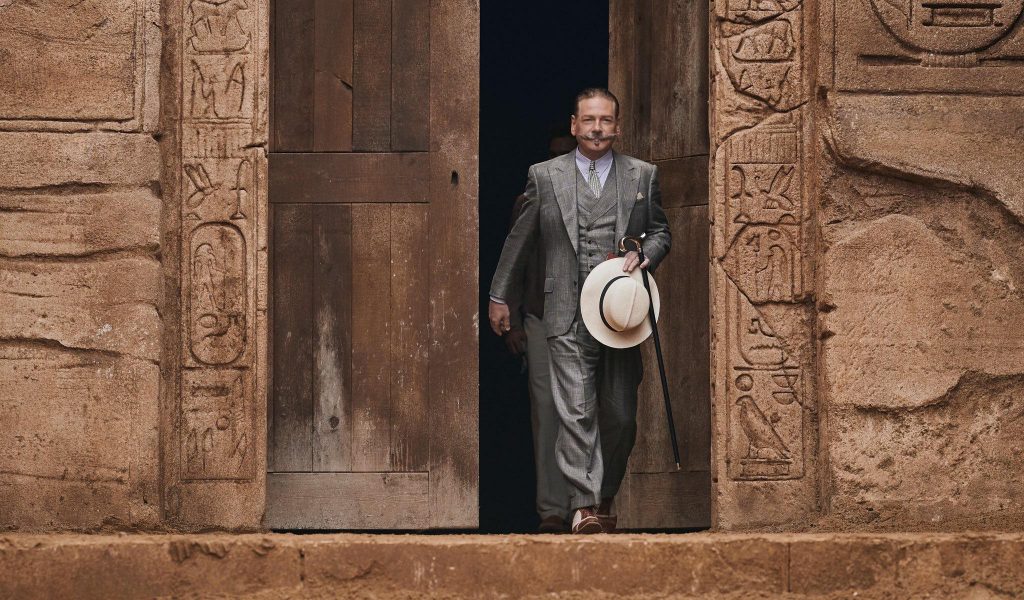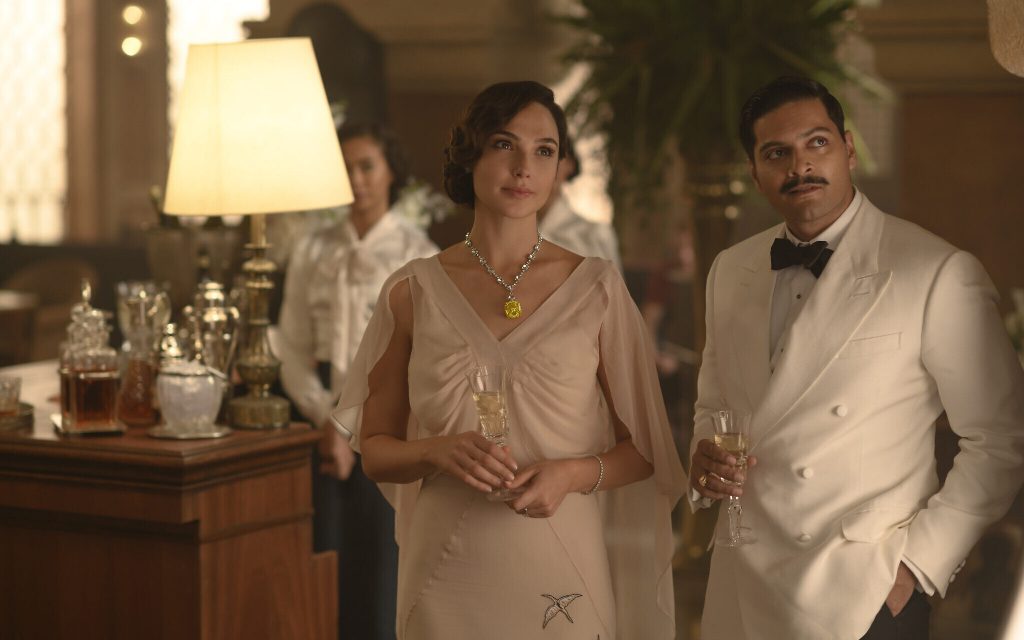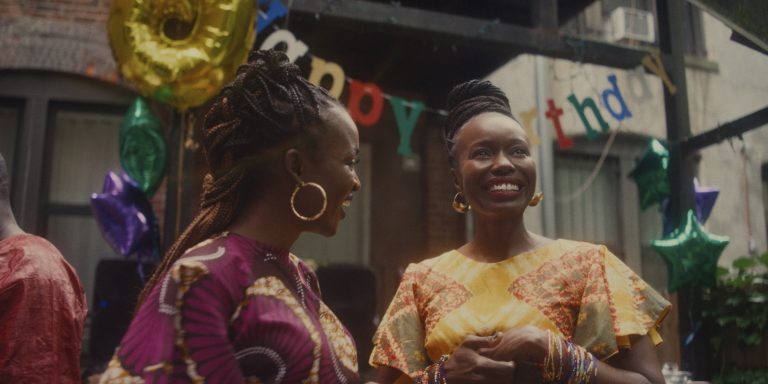Death on the Nile (2022) Movie Ending Explained & Themes Analyzed: Kenneth Branagh’s second venture directing a Christie novel with himself as Poirot is a similarly star-studded film as his first one, starring himself, Gal Gadot, Emma Mackey, Tom Bateman, Annette Benning, Armie Hammer, Dawn French, Jennifer Saunders, Ali Fazal, and Russell Brand. It’s an adaptation of Christie’s 1937 novel of the same name and is set in the same year. Initially meant for a 2020 release, it suffered from a number of delays owing to the pandemic and finally arrived in theatres earlier this year in February. It is now available to stream on Disney+ Hotstar.
Having released within a month of Branagh’s much more intimate ‘Belfast’ makes the shortcomings of ‘Death on the Nile’ seem all the more prominent. Its pristinely glossy, digital look, combined with the excessive usage of CGI robs it of a sense of space and immersion while the gliding cameras become overwhelming after a while, as do the speeches on love. Yet for all these issues, it’s a film made with a high romantic sensibility, evoking the sense of high adventure in films from the ‘30s, placing a murder mystery amidst an exotic setting, Egypt as viewed through the contemporary high life, and a sense of grandeur about it that makes its otherwise visible issues worth overlooking. It’s a film with a world seducing us to escape into it and for what it’s worth, it’s a perfectly enjoyable trip.
Death on the Nile (2022) Movie Plot Summary & Synopsis:
Poirot (Kenneth Branagh) is holidaying in Egypt when he comes across his old friend, Bouc (Tom Bateman). It turns out that he’s there on vacation too, with his mother, Euphemia (Annette Bening), to attend a wedding party. The newly married couple, Mr. Simon Doyle (Armie Hammer) and Mrs. Linnet Doyle (Gal Gadot), a gorgeous heiress to a vast amount of wealth, somewhat surprise Poirot. A few weeks prior to the party, Poirot had witnessed the same Simon in a club in London, engaged and quite evidently, to Jacqueline ‘Jackie’ de Bellefort (Emma Mackey), a childhood friend of Linnet’s, who was Ms. Ridgeway at the time. When Linnet arrived on the scene, the elation at seeing her friend soon gave way to anxiety for Jackie as she became witness to a blossoming attraction between Simon and Linnet.
Related to Death on the Nile: 10 Films To Watch If You Liked Knives Out (2019)
In Egypt, the celebrations are soon soured by Jackie’s appearance who seems to be stalking the newly married couple out of her spite and who Simon has now fallen out of love with. This troubles Linnet greatly who is already surrounded by guests who all have their own agenda against her, owing to her wealth. Poirot tries to intervene to ensure no party is harmed yet that seems to be of little effect, so he asks Linnet and Simon to abandon their party and return to the safety of their home. To avoid Jackie’s incessant stalking, Linnet rents a cruise ship, the S.S. Karnak, that’ll take them along the Nile, with all their guests, and Poirot is asked to join to make Linnet feel safe by watching over the couple. After narrowly escaping a dangerous ‘accident’ in Abu Simbel, Jackie boards their cruise, and Linnet, tired of this harassment, decides to return home the following morning. That night though, after a scuffle in which Jackie shoots Simon in the leg, Linnet is shot in her sleep and an invaluable Tiffany necklace she received as a wedding gift from Simon (bought with her own money, of course) is stolen. The bodies soon start piling up and whoever has not faced that fate, remains a suspect.
‘A little man with enormous mustaches’
The highlight of the film and sure to go down as one of the most memorable sequences from any film this year is the opening of ‘Death on The Nile’. Starting in the trenches of the First World War in 1914, with a camera gliding along the length of one that is clearly a tribute to ‘Paths of Glory’, Branagh provides us with a proper story behind Poirot’s mustache. It so happened that on the day of this scene, Poirot, a soldier in the Belgian army, devised an ingenious plan to attack a bridge that was initially deemed to be a suicide mission by his captain. His idea, of attacking in that very moment when the wind was blowing away from them, to use it as cover in their advance saves the day and their attack is successful without too many casualties.
Yet right when the assault is over, his captain trips over a booby-trapped bomb that kills him and leaves Poirot severely injured. In the hospital, he is visited by his beloved, Katherine (Susanna Fielding), to whom he reveals the extent of his face’s disfigurement in the explosion. Katherine, shocked at first, asks him to grow a mustache to cover his wounds. Thus is born, the magnificently luxurious, four-pronged mustache of Poirot, which depending on who you ask, is either ‘immense’ or as Euphemia puts it, ‘ludicrous’.
‘Ah, love! It is not safe.’
The entirety of ‘Death on the Nile’ surrounds love, and as Poirot puts it, ‘People kill for love’. Thwarted love, misjudged love, hidden love, and doomed love. Yet a broader categorization would see the love in the film divided into two groups – love that destroys and love that heals and sustains. Simon and Jackie’s love is a passionate and fiery affair and the remnants of it in Jackie display an obsession that is meant to have consequences. The sudden nature of Linnet and Simon’s love is instantly suspect and eventually leads to the former’s murder, making it a theatrical display to benefit the latter. There is also the love between Bouc and Rosalie (Letitia Wright), of which Euphemia vocally disapproves as her own marriage ended in misery, and their love affair ends in his death after he resorted to burglary to free himself from his dependence on his mother. Young love hence becomes a reckless pursuit that intentionally, or circumstantially, drives people to criminality.
On the other hand, lies the kind of love that is largely selfless and which is limited to the ship’s older populace. The photo of his love that Poirot kissed before going to bed in ‘Murder on the Orient Express’ is shown to be his beloved Katherine, whose death during the First World War made him become ‘whatever it is [he is] now’. A clear romance, with immense potential, is evident between Salome (Sophie Okonedo) and Poirot though he is unable to voice his love, perhaps out of his love for Katherine that still persists. Dr. Windlesham (Russell Brand), Linnet’s former fiance who is, in reality, a member of the landed aristocracy, was initially engaged to Linnet for ‘aristocratic theatrics’ but actually fell in love with her, causing the break-up of the engagement to shatter his heart. When Poirot is investigating Mrs. Bowers’s (Dawn French) actions on the night of Linnet’s murder, Marie Van Schuyler (Jennifer Saunders) comes to her aid. Poirot displays doubt at a woman so class conscious and sympathetic towards the plight of the working class having a maid. Hence, the audience is informed that they are really clandestine lovers who use the mistress-servant relationship to hide their love from the world while remaining in each other’s company at all times without arousing suspicion.
‘Money is the alienated essence of man’s labor and life.’
Christie’s ‘closed-door’ mysteries are mostly set in country manors or places frequented by the aristocracy. This always adds, even if ostensibly, an economic angle to her mysteries, and to this rule, ‘Death on the Nile’ is no exception. There is a comical subplot involving Van Schuyler, who despite her wealth, is a communist and has pledged her will to the Communist party and who keeps talking like a sophomore student in college about revolutions, exploitation of workers, and the like.
The exotic Egyptian setting is further romanticized by limiting the action largely to decadent settings like swanky hotels and a cruise. After all, it’s the marriage party of an heiress renowned for the kind of wealth she is to inherit. And this very wealth is what makes her so insecure about her safety, imbuing almost all her ‘friends’ with a motive to murder her. Her cousin Andrew (Ali Fazal) was trying to gain greater control over her wealth as her trustee and could’ve murdered her to prevent her from finding out. Bowers’s family lost all their wealth during the crash of 1928 and given that she and Van Schuyler are lovers, she could gain her life of comfort back by murdering Linnet, what with Van Schuyler being the beneficiary of Linnet’s wealth. And to top it all off, the position of Linnet’s husband, regardless of the grand showings of love, is inherently suspect as that person would benefit immensely from it, be it Dr. Windlesham or Simon Doyle. Money then becomes, if not the immediate cause behind the violence, a perfectly clear excuse to engage in it, for almost all the members of the wedding party. In the end, it is a duplicitous gain of wealth for which Linnet, and the others, are revealed to have been murdered.
Death on the Nile (2022) Movie Ending Explained:
The sudden discovery of Linnet’s maid, Louise Bourget’s (Rose Leslie) corpse, whose throat had been slit creates bedlam onboard. The primary suspect in this matter becomes Dr. Windlesham as being a doctor he carries a bagful of scalpels, knives, and other similar sharp objects. Bouc decides to inform her former fiance which instantly arouses suspicion in Poirot as he had not even bothered to inform Linnet when Simon was shot by Jackie in the parlor. We discover then that after Simon was shot, Bouc went over to Linnet’s cabin to inform her but saw that she was already dead, making him the first person to discover her body. But instead of letting the others know, he stole her necklace to sell it and become financially independent so that he wouldn’t require his mother’s consent to marry Rosalie. When informed about the cabin search, he attempted to return the necklace but on the way, heard Louise arguing with someone and witnessed her murder which made him panic and hide the necklace in his mother’s room. As Bouc is about to reluctantly disclose Louise’s murderer’s identity, he is shot dead by a figure in the shadows.
Poirot, now vengeful owing to such a close friend’s death and having come in harm’s way while chasing the figure that shot Bouc, resolves the mystery having put all the pieces together. The boulder that almost fell on Simon and Linnet in Abu Simbel is revealed to have been unclasped from its place by Cousin Andrew, who admits that he did that in an impassioned moment but he isn’t the killer. The killers are declared to be Simon and Jackie, the latter having masterminded the plan.
Also, Read: Belfast (2021) Review
On the night of the murder of Linnet, Simon drugged Poirot to remove him from the entire scene as after all, he was an unforeseen obstacle. During their scuffle in the parlor, Jackie shot Simon with a blank, who at that moment covered his wound with red paint he had stolen from Euphemia’s paintbox. When everyone left Simon momentarily, he ran over to Linnet’s room, shot her in the head, came back to the parlor where he actually shot himself in the leg while smothering the sound with the missing scarf, and then threw away the gun into the Nile having loaded it with a bullet to make it look like it was used just once. Louise witnessed Simon’s crime but didn’t inform Poirot as Simon promised to take care of her in the wake of Linnet’s death. Still a possible threat in the future, she was then eliminated by Jackie using a scalpel from Dr. Windlesham’s bag and when Bouc was going to reveal her identity, she killed him too. Simon and Jackie had never fallen out of love and his marriage to Linnet was all part of the plan to kill her and make him inherit her wealth so that in time, the two of them could be happily married without financial worries. Simon and Jackie try to escape from the ship at this point but are caught in a Mexican stand-off with Poirot and Salome. With nowhere left to run, Jackie kills Simon and herself to ensure that the punishment for their crimes does not separate them for the rest of their lives.
In the epilogue, six months later, Poirot sits and watches Salome sing in the same bar where Linnet and Simon first met and where he had first set eyes on Salome. His mustache is now gone and his scar is clearly visible. This recalls the moment when Salome had called Poirot’s mustache a ‘mask’. Now seated in that bar, he is no longer a celebrity detective but a man deeply in love with Salome and hence, unafraid to show her his unmasked face.
Death on the Nile Links: IMDb, Wikipedia








![My Darling Clementine [1946]: An Iconic Western Lore](https://79468c92.delivery.rocketcdn.me/wp-content/uploads/2016/10/Clementine-2-768x555.jpg)